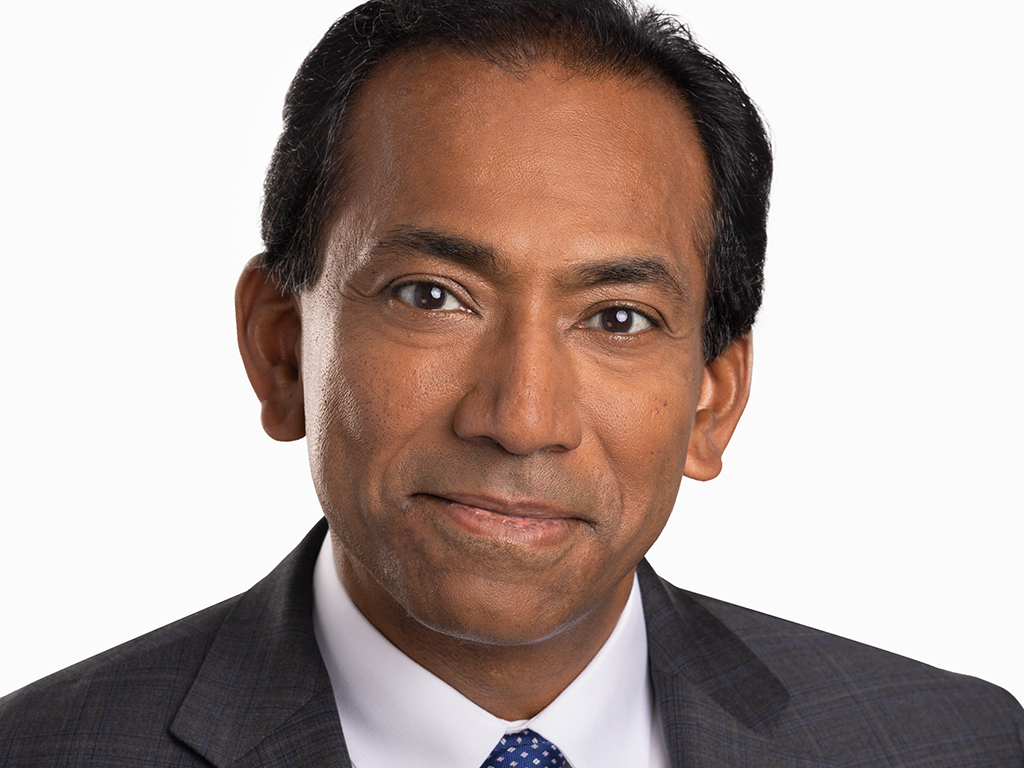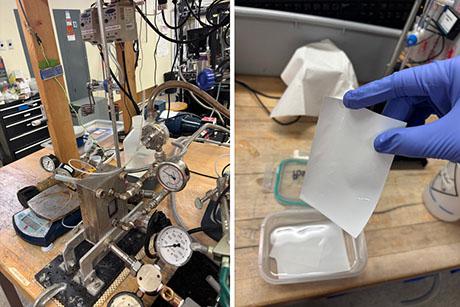Vijay Vaitheeswaran ’90: Engineer, economist, editor
“This is a golden age of climate tech innovation,” says Vijay Vaitheeswaran ’90, global energy and climate innovation editor for The Economist. “Dealing with climate change and energy needs in a timely fashion, while still allowing the energy use needed for growth, really is the challenge of our life time… and there’s a huge contribution to the kind of thinking needed to tackle this that comes from engineering.”
This kind of thinking is something MIT fosters extremely well, Vaitheeswaran says, by encouraging multidisciplinary study and the kind of collaboration that helps to break down traditional silos.
“In my years at MIT and beyond, the people I’ve seen who have had the most impact are the ones who, even as they’re brilliant at their own research, read widely outside of their field. They’re well-traveled and know the context and reality of other parts of the world, different from their daily reality or the world they grew up in. They’re the ones that dabble in adjacencies.”
 Vijay Vaitheeswaran ’90, is Global Energy and Climate Innovation Editor for The Economist.
Vijay Vaitheeswaran ’90, is Global Energy and Climate Innovation Editor for The Economist. Hyper-specialization can be attractive, he says, especially in very technical fields, and it can even be necessary for advancing blue-sky research, but the greatest problem solvers need to be “something of a renaissance woman or renaissance man.”
For example, addressing climate issues, he says, requires a broad understanding of the context in which the technology will exist, including factors that drive political consensus, policy, and societal acceptance.
“In the case of climate change, the subsidy policies that have come out of Washington with the inflation reduction act will probably do more to advance the engineering of climate tech solutions than anything that’s happened in a laboratory in the last ten years,” Vaitheeswaran says.
The years Vaitheeswaran attended MIT were some of the first when a big push was taking place for students to enroll in humanities, arts, and social science courses. He studied in Course 2, but was also able to do a UROP in course 3 (materials science and engineering) and complete a minor in course 17 (political science).
“We had a lot of opportunities and encouragement to take courses outside of our majors. In my case, I took a lot of courses in political science and economics,” he says. “I was quite inspired. I learned that technology doesn’t just exist in a vacuum. Invention is the beginning of the process, but to connect it to what’s valuable in society is really the process of innovation. I learned an intuitive appreciation for it at MIT.”
After graduation, Vaitheeswaran worked in marketing and was making plans to go to business school when a former roommate suggested he apply for an internship at The Economist.
“MIT was a great place to find out who I am, and who I’m not. I clearly didn’t spend my life as a mechanical engineer, as some of my best friends from Course 2 have with start-up companies, or working at national labs, or designing engines for Detroit car companies – that wasn’t where I ended up,” he says. “But the skills I learned at MIT, and, in particular, a certain kind of critical thinking, an engineering mindset around problem solving, and a desire to look for systems solutions, rather taking facts as they’re presented at face value – those are all things that MIT teaches really well.”
He got the internship, and never left. “I’ve done a lot of thinking and writing and different types of jobs related to how technology connects with policy, with society, and with people’s lives. Figuring out how exactly to do that is where The Economist happened to come in.”
Vaitheeswaran joined the publication’s editorial staff in 1992 as its London-based Latin America correspondent, then later opened the magazine’s first regional bureau in Mexico City. He’s covered the politics, economics, business and technology of energy and the environment, and innovation, global health, pharmaceuticals and biotechnology. He’s also written several books addressing sustainability, the future of cars and oil, and global innovation, and he’s served as both US Business Editor and China Business Editor, and as chairman of The Economist Innovation Summit.
Today, he covers the energy and utility industries, the clean energy transition, climate innovations and low carbon technologies, along with environmental, social, and governance trends. He picked his area of focus, he says, because it’s the hardest problem he encountered, a trait he said he thinks is shared by many people with MIT connections.
“MIT attracts people who are interested in hard things. They tend to live their lives that way as well. They take on some tough challenges, and not necessarily do the easy thing or the quick thing to make money, but, rather, what’s going to keep your brain engaged, what’s going to make a difference. I think that’s the best of the MIT spirit.”
This article appeared in the Spring 2024 edition of our magazine, MechE Connects. For more stories, and for past issues, please visit meche.mit.edu/magazine.

